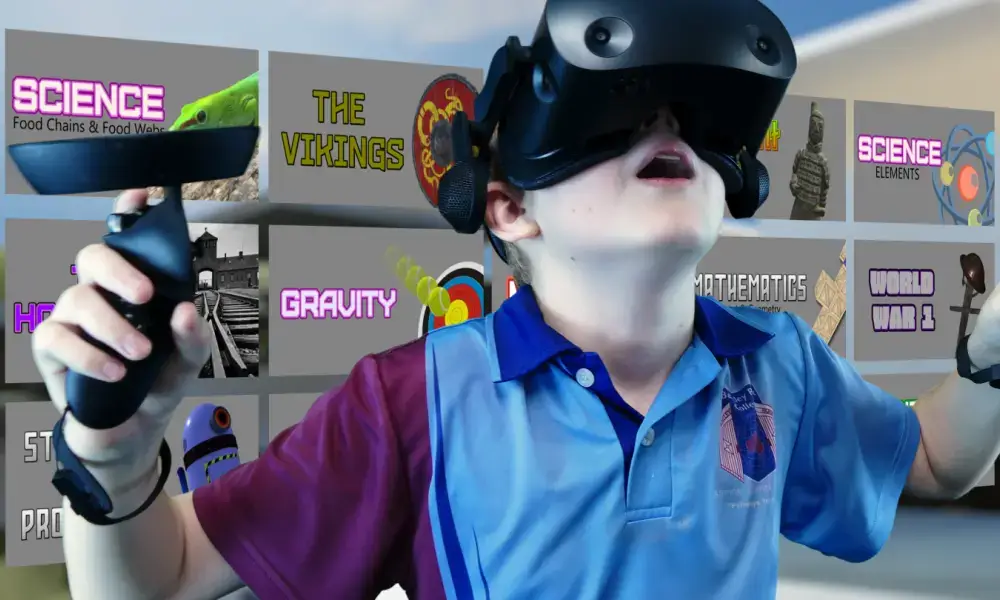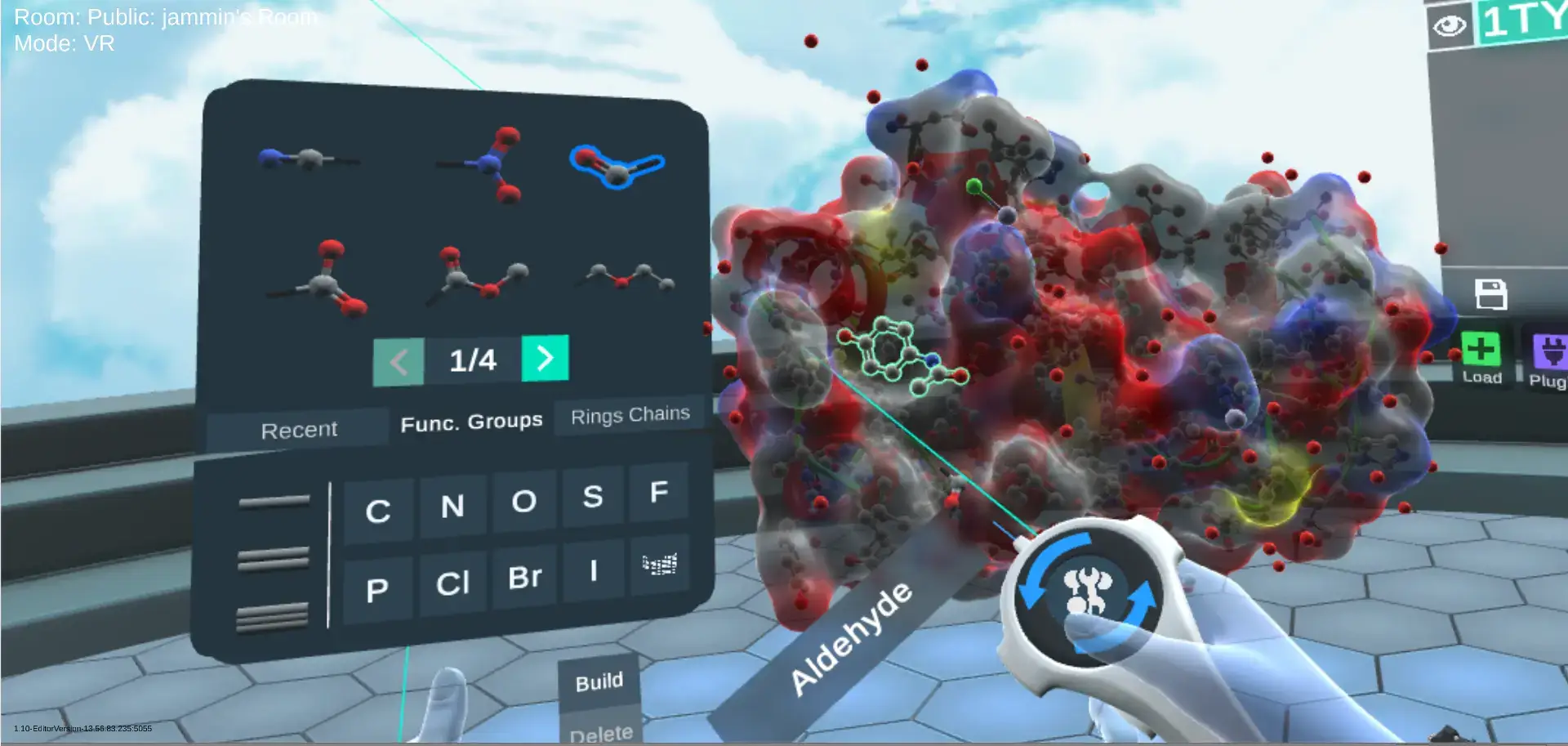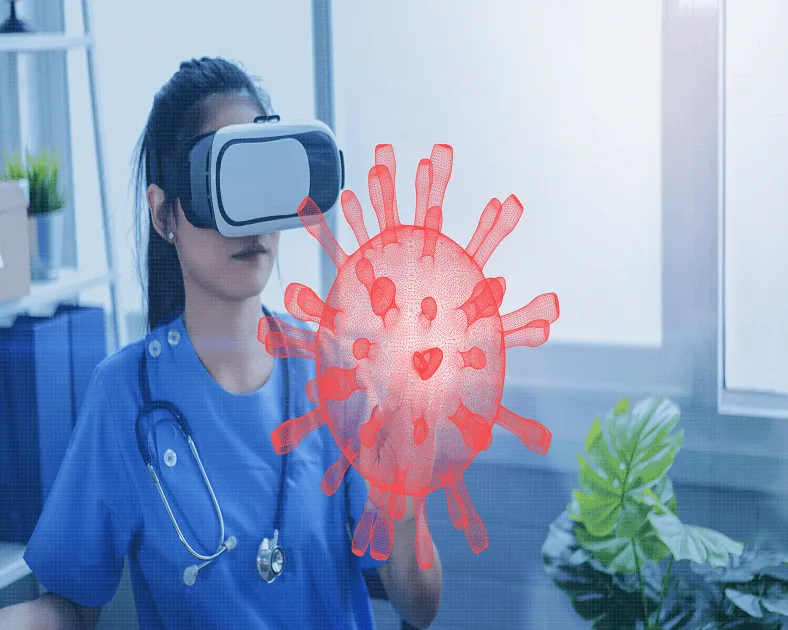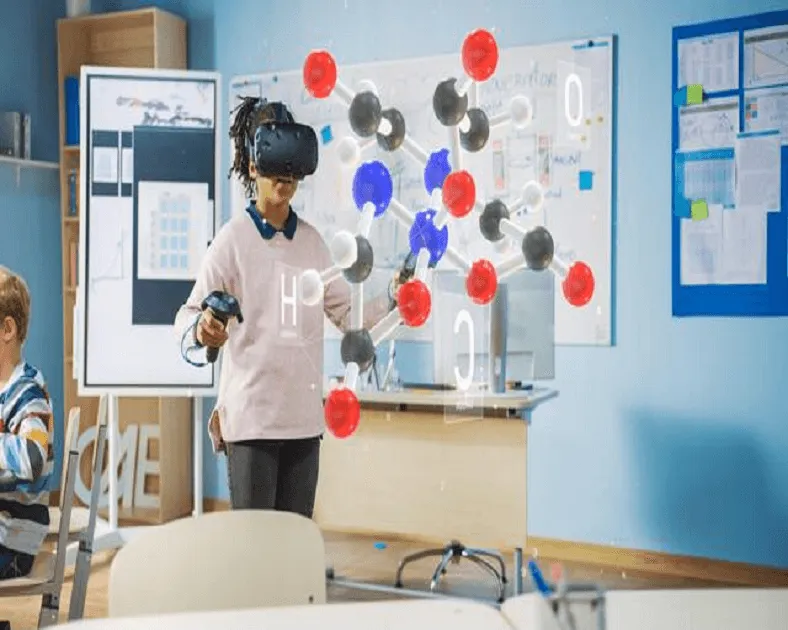Virtual Reality in Education
Introduction:
Virtual Reality (VR) technology has rapidly emerged as a transformative tool in various fields, and education is no exception. As educators seek innovative methods to engage students and enhance learning experiences, VR presents a promising solution. This article delves into the benefits of VR in education and explores the pivotal role that Asfan Company is playing in advancing VR education.
Benefits of VR in Education:

-
Immersive Learning Experiences: VR transports students into simulated environments, providing immersive experiences that conventional methods cannot replicate. Whether exploring the depths of the ocean or journeying through historical landmarks, VR fosters active learning by stimulating multiple senses.
-
Enhanced Retention and Understanding: Studies have shown that VR facilitates better retention and understanding of complex concepts. By engaging in hands-on activities within virtual environments, students can grasp abstract concepts more effectively, leading to deeper learning outcomes.
-
Personalized Learning Paths: VR technology allows for personalized learning experiences tailored to individual student needs. Through adaptive algorithms and interactive simulations, educators can customize content to match students' learning styles and pace, promoting greater engagement and achievement.
-
Safe Experimental Environments: In disciplines such as science and engineering, VR provides a safe space for students to conduct experiments and simulations without the risk of physical harm or expensive equipment. This hands-on approach encourages exploration and experimentation, fostering critical thinking and problem-solving skills.
-
Global Collaboration Opportunities: With VR, geographical barriers no longer limit collaboration. Students from around the world can interact and collaborate within shared virtual spaces, fostering cultural exchange and broadening perspectives.
How is VR used in special education?

Virtual Reality (VR) technology offers numerous benefits for special education by providing immersive and tailored learning experiences for students with diverse needs. Here are several ways VR is utilized in special education:
-
Sensory Stimulation: VR can be used to create immersive sensory experiences tailored to individual students' needs. For example, students with sensory processing disorders can explore virtual environments with controlled sensory stimuli, helping them regulate their sensory experiences in a safe and controlled setting.
-
Social Skills Development: VR provides a platform for students to practice social interactions and communication skills in realistic scenarios. Virtual environments can simulate social situations such as group conversations, job interviews, or public speaking engagements, allowing students to develop and refine their social skills in a supportive and controlled environment.
-
Behavior Management: VR-based interventions can help students learn and practice self-regulation techniques to manage challenging behaviors. By immersing students in interactive scenarios that simulate real-life situations, VR programs can teach coping strategies and emotional regulation skills in a safe and controlled environment.
-
Cognitive Skills Training: VR applications can be designed to enhance cognitive skills such as memory, attention, and problem-solving. For students with learning disabilities or cognitive impairments, VR-based games and exercises can provide engaging opportunities to practice and improve cognitive abilities in a fun and interactive manner.
-
Virtual Field Trips: VR allows students to explore virtual versions of real-world locations and historical sites, providing immersive educational experiences that may not be accessible through traditional field trips. For students with mobility issues or other physical disabilities, virtual field trips offer an inclusive alternative to traditional excursions.
-
Personalized Learning Experiences: VR technology enables educators to create customized learning experiences tailored to individual students' needs and preferences. By adjusting the content, pace, and level of difficulty to match each student's learning style and abilities, VR programs can provide personalized instruction that maximizes learning outcomes.
-
Vocational Training: VR simulations can be used to provide hands-on training and practice for students preparing for employment. Virtual job simulations allow students to explore different career paths, develop job-related skills, and gain confidence in their abilities, preparing them for successful transition to the workforce.
Overall, VR holds great promise for enhancing special education by providing immersive, engaging, and personalized learning experiences that address the unique needs of students with disabilities and learning differences. As VR technology continues to advance, its potential to transform special education and improve outcomes for students with diverse needs will only continue to grow.
How is VR used in special education?
Virtual Reality (VR) has shown great promise in special education by providing tailored, immersive, and engaging learning experiences for students with diverse needs. Here are several ways VR is utilized in special education:
-
Sensory Stimulation: VR environments can be customized to provide controlled sensory stimulation for students with sensory processing disorders. By adjusting visual, auditory, and tactile stimuli, VR helps students regulate sensory experiences in a safe and controlled setting.
-
Social Skills Development: VR simulations offer opportunities for students to practice social interactions and communication skills in realistic scenarios. Virtual environments can simulate social situations such as group conversations, job interviews, or public speaking engagements, allowing students to develop and refine their social skills in a supportive and controlled environment.
-
Behavior Management: VR-based interventions can teach self-regulation techniques to manage challenging behaviors. By immersing students in interactive scenarios that simulate real-life situations, VR programs teach coping strategies and emotional regulation skills in a safe environment.
-
Cognitive Skills Training: VR applications can enhance cognitive skills such as memory, attention, and problem-solving. For students with learning disabilities or cognitive impairments, VR-based games and exercises provide engaging opportunities to practice and improve cognitive abilities in a fun and interactive manner.
-
Virtual Field Trips: VR allows students to explore virtual versions of real-world locations and historical sites, providing immersive educational experiences that may not be accessible through traditional field trips. Virtual field trips offer an inclusive alternative for students with mobility issues or other physical disabilities.
-
Personalized Learning Experiences: VR technology enables educators to create customized learning experiences tailored to individual students' needs and preferences. By adjusting content, pace, and difficulty levels, VR programs provide personalized instruction that maximizes learning outcomes.
-
Empathy Building: VR can promote empathy and understanding by allowing students to experience the perspectives of others. Immersive simulations of life with disabilities or simulations of challenging situations help students develop empathy and foster inclusivity and acceptance.
-
Life Skills Training: VR simulations can teach practical life skills such as cooking, shopping, or using public transportation in a safe and controlled environment. These simulations prepare students for independent living and community integration.
The role of Asfan Company in VR education:
Asfan Company has emerged as a leading innovator in VR education, leveraging cutting-edge technology to revolutionize the learning experience. Through its commitment to research and development, Asfan has developed immersive educational content tailored to diverse subjects and grade levels.
-
Curriculum Integration: Asfan collaborates with educators to integrate VR content seamlessly into existing curricula, enhancing traditional teaching methods with immersive experiences. From history and science to mathematics and language arts, Asfan's VR modules cover a wide range of subjects, aligning with educational standards and objectives.
-
Customized Solutions: Recognizing the unique needs of educational institutions, Asfan offers customized VR solutions tailored to specific requirements. Whether designing virtual labs for science classes or creating interactive simulations for vocational training programs, Asfan works closely with clients to develop tailored solutions that meet their instructional goals.
-
Professional Development: In addition to student-focused initiatives, Asfan provides professional development opportunities for educators to enhance their VR teaching skills. Through workshops, training sessions, and online resources, Asfan equips teachers with the knowledge and tools needed to effectively integrate VR technology into their classrooms.
-
Research and Innovation: Asfan is committed to ongoing research and innovation in VR education, continuously exploring new ways to enhance learning outcomes. By collaborating with academic institutions and industry partners, Asfan stays at the forefront of technological advancements, ensuring that its VR solutions remain cutting-edge and effective.
Conclusion:
Virtual Reality has the potential to revolutionize education by offering immersive, personalized, and engaging learning experiences. Asfan Company stands at the forefront of this educational transformation, providing innovative VR solutions that empower educators and inspire students. With its commitment to excellence and ongoing investment in research and development, Asfan is poised to shape the future of education through virtual reality.
References
Explore More Projects
We welcome your questions, do not hesitate to contact us
- Create virtual reality and augmented reality experiences at the best prices
- Equipping engineering laboratories with the best equipment
- Virtual tours with 360° technology and also feature that you can see them through just one link
- Create virtual reality and augmented reality experiences at the best prices
- Equipping engineering laboratories with the best equipment
-
Virtual tours with 360° technology and also feature that you can see
them through just one link



